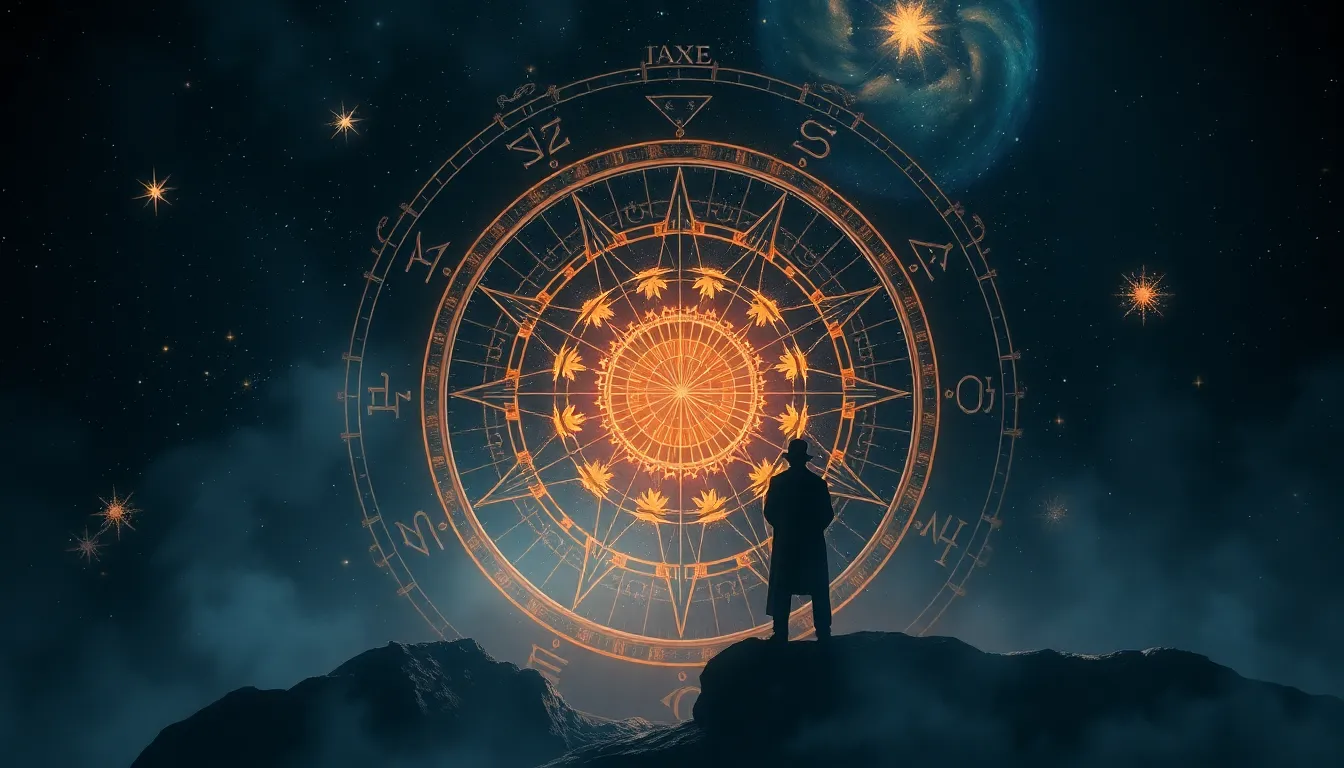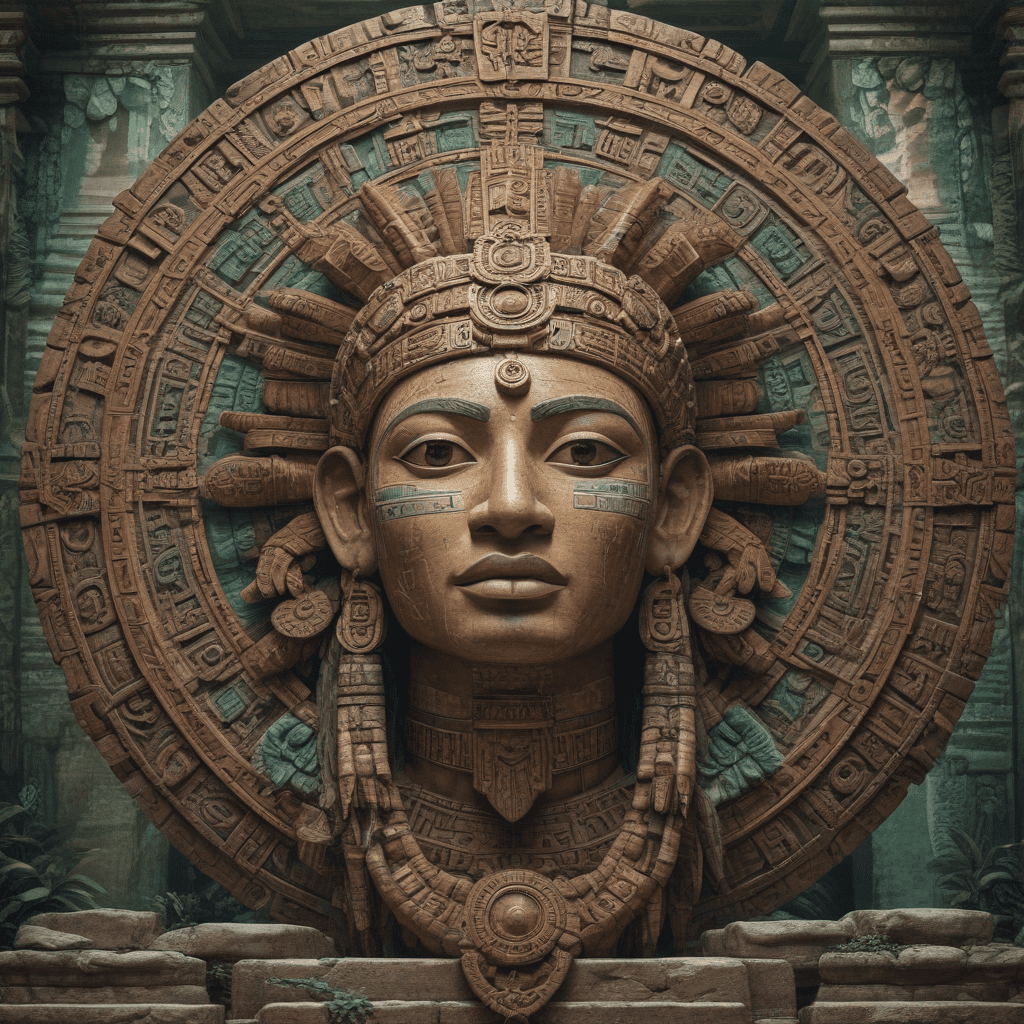The Prophetic Powers of Astrology: Can the Stars Predict Our Fate?
I. Introduction
Astrology is the study of celestial bodies’ positions and movements and their potential influence on human affairs and natural phenomena. Historically, it has been significant in various cultures, serving both as a scientific endeavor and a spiritual guide. The belief in astrological predictions has persisted for centuries, with many people turning to the stars for guidance on their life choices.
This article aims to explore the validity of astrology in predicting fate, examining its historical roots, mechanics, scientific perspectives, psychological appeal, and contemporary relevance.
II. The Historical Roots of Astrology
Astrology has deep roots in ancient civilizations, where it played a crucial role in cultural and societal development.
A. Ancient civilizations and their astrological practices
- Mesopotamia: Considered the birthplace of astrology, the Babylonians developed an intricate system of celestial observation around 2000 BC, using it for agricultural and political predictions.
- Ancient Egypt: Egyptians linked the movements of planets and stars to their gods, integrating astrology into their religious practices and architecture, such as the alignment of the pyramids.
- Greek astrology and its evolution: Greek philosophers like Ptolemy synthesized Babylonian and Egyptian knowledge, formalizing astrological practices that influenced future generations.
B. The role of astrology in various cultures and societies
Throughout history, astrology has been intertwined with mythology, religion, and governance. Leaders often consulted astrologers for guidance in decision-making, and astrological texts were revered as sacred knowledge.
III. The Mechanics of Astrology
Astrology operates on specific principles and concepts that astrologers use to interpret celestial influences.
A. Explanation of key concepts: zodiac signs, houses, and aspects
- Zodiac signs: The zodiac is divided into 12 signs, each associated with distinct personality traits and life themes.
- Houses: The astrological chart is divided into 12 houses, representing different life areas, such as career, relationships, and spirituality.
- Aspects: Aspects refer to the angles between planets, indicating how their energies interact and influence each other.
B. How astrologers create charts and interpret them
Astrologers create natal charts based on an individual’s birth date, time, and location. They interpret the positions of planets within the houses and signs to provide insights into personality and potential life events.
C. The difference between natal astrology and predictive astrology
Natal astrology focuses on understanding an individual’s inherent traits, while predictive astrology attempts to forecast future events using transits and progressions of celestial bodies.
IV. The Science Behind Astrology
The scientific community has approached astrology with skepticism, often questioning its validity as a predictive tool.
A. Overview of scientific perspectives on astrology
Many scientists argue that astrology lacks empirical support and relies on anecdotal evidence. They emphasize that the gravitational effects of celestial bodies on human life are negligible.
B. Critical studies and reviews of astrology’s predictive capabilities
Numerous studies have attempted to validate astrological predictions, often finding no significant correlation between astrological factors and personality or life events.
C. The psychological aspects of belief in astrology
The belief in astrology can be analyzed through psychological lenses, suggesting that it may fulfill emotional needs for control and understanding in an unpredictable world.
V. Case Studies: Astrological Predictions in Practice
Examining notable astrologers and predictions can provide insight into astrology’s practical applications.
A. Famous astrologers and their predictions
- Linda Goodman: Known for her best-selling astrology books, she popularized astrological concepts in the 1960s.
- Jeane Dixon: A renowned astrologer who gained fame for her predictions about political events and celebrities.
B. Anecdotal evidence from individuals who believe in astrological guidance
Many individuals report profound life changes and insights gained from astrological readings, attributing their personal growth to astrological guidance.
C. Analysis of notable astrological events and their outcomes
Significant astrological events, such as eclipses or planetary alignments, are often scrutinized for their perceived influence on global events, though evidence remains largely anecdotal.
VI. The Psychological Appeal of Astrology
Astrology serves as a psychological tool for many, fulfilling deep-seated human needs.
A. Understanding the human need for guidance and prediction
People often seek guidance in navigating life’s uncertainties, and astrology provides a framework for understanding their experiences and choices.
B. The role of confirmation bias in astrological belief
Individuals may unconsciously seek information that confirms their astrological beliefs, reinforcing their faith in astrology as a predictive tool.
C. Astrology as a tool for self-reflection and personal growth
For many, astrology serves as a means of self-reflection, encouraging individuals to explore their personality traits and life paths.
VII. The Ethical Implications of Astrological Predictions
The practice of astrology raises ethical considerations regarding its impact on individuals and society.
A. The responsibility of astrologers in guiding clients
Astrologers hold a responsibility to provide accurate and ethical guidance, ensuring clients understand the limitations of astrology.
B. Potential harms of relying solely on astrology for decision-making
Over-reliance on astrology can lead to avoidance of personal responsibility and agency in decision-making processes.
C. Balancing personal agency with astrological insights
Clients should view astrology as one tool among many in their decision-making toolkit, maintaining a balance between astrological insights and personal agency.
VIII. Astrology in the Modern Age
Astrology’s popularity has surged in contemporary culture, particularly among younger generations.
A. The resurgence of astrology in contemporary culture
Astrology has re-emerged as a popular topic in social discussions, with many turning to it for insights during turbulent times.
B. Astrology and social media: its impact on belief systems
Platforms like Instagram and TikTok have enabled astrologers to reach wider audiences, fostering a community of astrology enthusiasts.
C. The rise of apps and online platforms for astrological services
Mobile applications and websites now offer personalized astrological readings and horoscopes, making astrology more accessible than ever.
IX. Alternative Perspectives: Astrology vs. Other Predictive Systems
Astrology exists alongside other predictive practices, each offering unique insights.
A. Comparison with other forms of divination (e.g., tarot, palmistry)
While astrology focuses on celestial influences, other divination methods like tarot explore intuitive insights and personal experiences.
B. The intersection of astrology with psychology and personal development
Astrology can complement psychological practices, providing frameworks for understanding personality and behavior.
C. The cultural significance of diverse predictive practices
Each predictive system reflects cultural beliefs and values, highlighting the human desire to seek meaning and understanding in life.
X. Conclusion
In summary, astrology has a rich historical background and continues to captivate individuals seeking guidance and understanding. While scientific scrutiny challenges its predictive capabilities, the psychological appeal of astrology remains undeniable. As society evolves, astrology adapts, finding new relevance in modern culture.
Ultimately, astrology serves as a mirror reflecting our desires for connection, understanding, and meaning. Whether viewed through a lens of skepticism or belief, its enduring presence in human life suggests a profound quest for knowledge about ourselves and our place in the universe.




